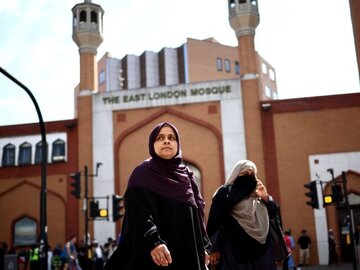(AhlulBayt News Agency) - The UN on Tuesday (Aug 30) welcomed a decision by France's highest administrative court to suspend a controversial ban on burkini swimwear, warning that the ban had fuelled religious intolerance and stigmatisation.
"These decrees do not improve the security situation but rather fuel religious intolerance and the stigmatisation of Muslims in France, especially women," Rupert Colville, spokesman for the UN rights office, told reporters.
"Dress codes such as the anti-burkini decrees disproportionately affect women and girls, undermining their autonomy by denying them the ability to make independent decisions about how to dress, and clearly discriminate against them," he said.
He also decried that "the manner in which the anti-burkini decrees have been implemented in some French resorts has been humiliating and degrading."
Around 30 coastal resorts have recently banned women from wearing the full-body swimwear on their beaches, although France's highest administrative court on Friday overturned the measure in one town, in a ruling likely to set a legal precedent which will affect the others.
The bans come in the wake of a string of terrorist attacks to hit France over the past 18 months, which have raised questions over security failures and resulted in a spike in Islamophobia.
Colville said the UN rights office welcomed the ruling affecting the seaside town of Villeneuve-Loubet, urging authorities in other French seaside towns and resorts that had adopted similar bans "to repeal them immediately."
He stressed that the bans would do nothing to make people safer.
"Clearly, individuals wearing burkinis, or any other form of clothing for that matter, cannot be blamed for the violent or hostile reactions of others," he said.
He warned that "by stimulating polarisation between communities, these clothing bans have only succeeded in increasing tensions ... (and may) undermine the effort to fight and prevent violent extremism."
Colville pointed out that according to international human rights standards, "limitations on manifestations of religion or belief, including choice of clothing, are only permitted in very limited circumstances, including public safety, public order, and public health or morals."
Such measures, he said, "must be appropriate, necessary, and proportionate."
"Gender equality cannot be achieved by restricting individual freedoms including by policing what individual women choose to wear," he said.
/257
30 August 2016 - 12:39
News ID: 775651

The UN on Tuesday (Aug 30) welcomed a decision by France's highest administrative court to suspend a controversial ban on burkini swimwear, warning that the ban had fuelled religious intolerance and stigmatisation.




